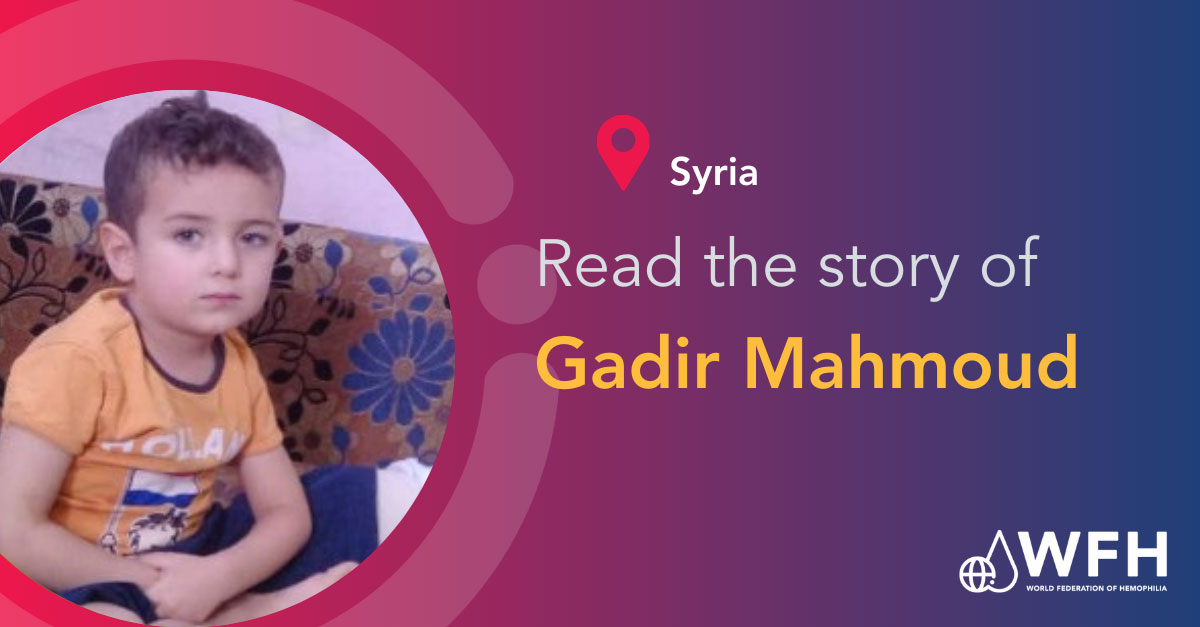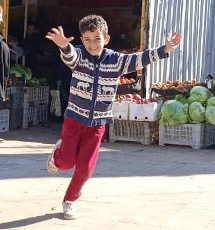Gadir’s situation changed for the better when he began prophylactic therapy with non-factor replacement therapy provided by the WFH Humanitarian Aid Program. Since starting the treatment, his ankle has not bled once. For the first time in years, he has not needed any factor VIII, and the constant worry of another episode has lifted.
Photographs taken before and after treatment show the dramatic improvement in his situation—proof of how access to prophylactic treatment can give children with hemophilia a chance to live active, pain-free lives.
The WFH is engaged in Syria through multiple initiatives designed to help the country move toward providing sustainable care for its inherited bleeding disorders community. Among these efforts is the WFH Humanitarian Aid Program, which is already transforming lives for children like Gadir Mahmoud.
Over 5 million IUs of factor were donated to Syria through the WFH Humanitarian Aid Program in 2024, along with 53 thousand mgs of non-factor replacement therapy. Since 2015, nearly 44 million IUs of factor, and over 185 thousand mgs of non-factor replacement therapy have been donated. To find out more about the WFH Humanitarian Program, please click here.
About the WFH Humanitarian Aid Program
The WFH Humanitarian Aid Program improves the lack of access to care and treatment by providing much-needed support for people with inherited bleeding disorders in developing countries. By providing patients with a more predictable and sustainable flow of humanitarian aid donations, the WFH Humanitarian Aid Program makes it possible for patients to receive consistent and reliable access to treatment and care. None of this would be possible without the generous support of Sanofi and Sobi, our Founding Visionary Contributors; Bayer, CSL Behring and Roche, our Visionary Contributors; Grifols, our Leadership Contributor; and Takeda, our Contributor. To learn more about the WFH Humanitarian Aid Program, visit www.treatmentforall.org.














